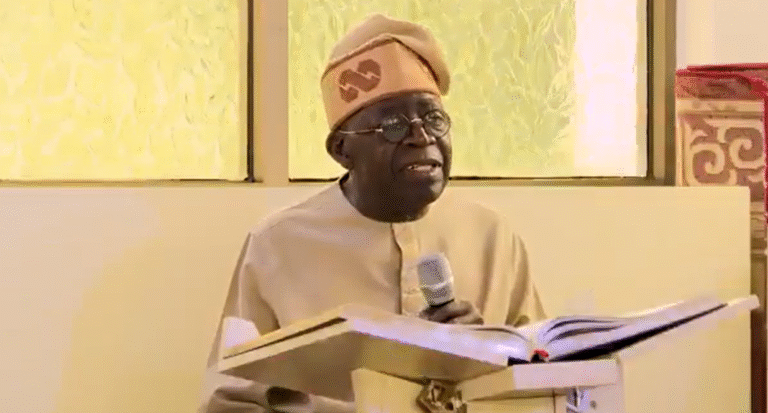
The Centre for the Promotion of Private Enterprise (CPPE) says many Nigerian families are still not experiencing real relief from the recent fall in the country’s inflation rate, warning that deep-rooted structural issues continue to erode the gains.
On Monday, the National Bureau of Statistics (NBS) reported that headline inflation eased to 16.05 percent in October, marking one of the steepest declines in recent months.
Reacting to the development, Muda Yusuf, chief executive officer of the CPPE, described the drop as a welcome milestone for economic stability but noted that the impact on daily living remains limited.
“However, the full welfare benefits are yet to be sufficiently felt by households due to persistent structural constraints—especially in food supply, transportation, energy, housing, and essential services,” he said in a statement.
Yusuf stressed that for disinflation to translate into meaningful improvements for citizens, the government must intensify reforms targeting food production, logistics, energy supply, and other essential sectors. According to him, aligning monetary, fiscal, and structural policies will help deepen and sustain the current disinflation trend.
He explained that the moderation in inflation was buoyed by base effects, exchange rate stability, and improving macroeconomic indicators.
“Similar moderation was seen across food and core inflation indices. However, inflationary pressures remain elevated in critical household sectors—including food, transportation, housing, utilities, education, and health—which jointly account for 84% of inflation,” he said.
He added that supply-side challenges — such as rising logistics expenses, energy shortages, insecurity in agricultural zones, and climate-related setbacks — continue to blunt the expected welfare gains from the drop in inflation.
“This policy brief outlines the inflation trends, identifies underlying pressures, and proposes targeted interventions to consolidate disinflation while addressing root causes of cost escalation,” he said.
According to Yusuf, Nigeria’s economic landscape showed clearer signs of stability in October, supported by improving coordination among fiscal, monetary, and foreign-exchange policies.
“The persistent downward trend is indicative of improving policy coordination in monetary, fiscal, and exchange rate management. The magnitude of the October decline exceeded expectations, signaling stronger confidence in the ongoing reform agenda,” he said.
He also highlighted that the high inflation figure recorded in October 2024 contributed to the statistical drop.
“This base effect was a major contributor to the October 2025 outcome,” the CPPE CEO said.
On the foreign exchange market, he noted that the naira has shown modest gains and steadier performance in recent months, helping reduce imported inflation across sectors reliant on foreign inputs and energy.
He said coordinated policy actions — including tighter monetary conditions, improved FX liquidity, reduced speculative dollar demand, and better investor confidence — have all contributed to the disinflation trend.
Despite the progress, Yusuf pointed out that five key areas still dominate Nigeria’s inflation profile: food and non-alcoholic beverages, transportation, housing and utilities, education, and health.
He emphasised that these sectors shape the cost of living for most households, making them central to any serious strategy to curb inflation.
Yusuf added that longstanding structural barriers — including high logistics and energy costs, expensive credit, climate shocks, insecurity in farm belts, and an ageing agricultural workforce — continue to limit how much of the inflation drop consumers can actually feel in their pockets.
VANGUARD.




